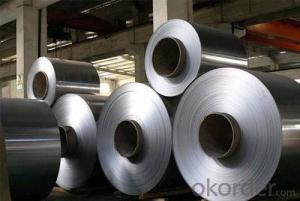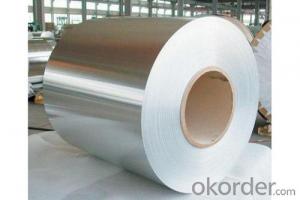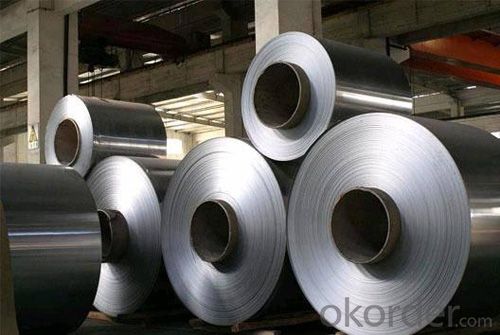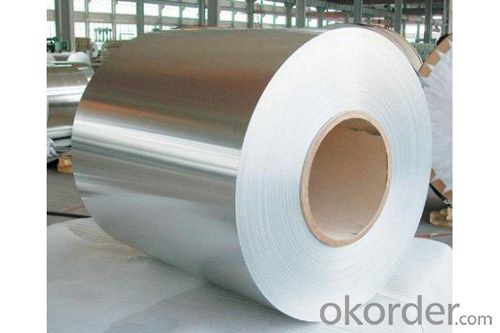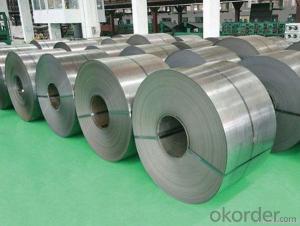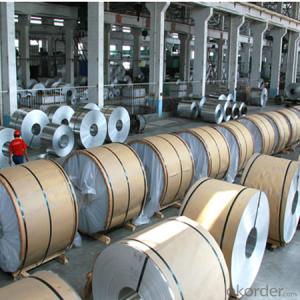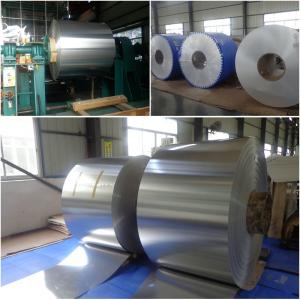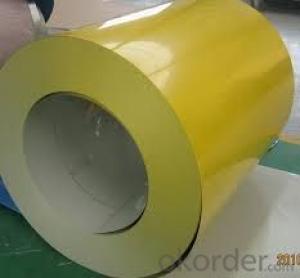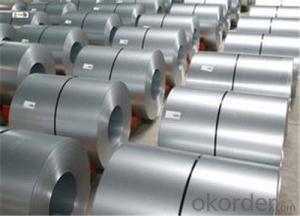Best Aluminum Coil Slitter Quotes for Ceiling Roofing Mill Finished
- Loading Port:
- China main port
- Payment Terms:
- TT OR LC
- Min Order Qty:
- 5 m.t
- Supply Capability:
- 10000 m.t/month
OKorder Service Pledge
OKorder Financial Service
You Might Also Like
Specification
1. Specification of Aluminium Coil for Ceiling Roofing Mill Finished
Thickness: 0.1mm-10mm
Regular Thickness:0.1mm/0.2mm/0.25mm/0.3mm/0.6mm/0.8mm/1.0mm/1.2mm/1.5mm/2.0mm/3.0mm...
Width: 20mm-2500mm
Inner Diameter: 505mm 508mm 605mm
Material:1050,1060,1070,1100,1200,3003,3004,3005
Temper: O,H12,H14,H16,H18,H22,H24,H26,H32,H34,H36,H38,H111,H112
Surface: mill finish
Packing: Export standard wooden pallets
Payment Terms: 100% irrevocable L/C at sight or 30% T/T in advance as deposit,70% balance against the B/L copy
MOQ: 5000kg
Delivery time: 15-25 days after receiving L/C or deposit
Remark: Specific requirement of alloy grade, temper or specification can be discussed at
your request
2. Application of Aluminium Coil for Ceiling Roofing Mill Finished
(1).Interior: wall cladding, ceilings, bathrooms, kitchens and balconies, shutters, doors...
(2).Exterior: wall cladding, facades, roofing, canopies, tunnels,column covers , renovations...
(3).Advertisement: display platforms, signboards, fascia, shop fronts...
3. Feature of Aluminium Coil for Ceiling Roofing Mill Finished
*Such coil is specially designed to replace aluminum ingot, due to the high export tax of aluminum ingot, the coil has better price than ingot.
*This type of coil can fit customer's remelting furnace just like ingot, no need to make any change to the production line that was previously used for ingot. The standard coil size and weight is very suitable for the feed gate of furnace.
*This type of coil causes less material wastage than ingot when remelted.
*Our coil is made directly from ore, no need to go though the ingot making process, quality is much better than other suppliers who use ingot scrap to make coil.
Be free from Oil Stain, Dent, Inclusion, Scratches, Stain, Oxide Dicoloration, Breaks, Corrosion, Roll Marks, Dirt Streaks and other defect which will interfere with use
4. Certificate:
SGS and ROHS(if client request, paid by client), MTC(plant provided), Certificate of Origin(FORM A, FORM E, CO), Bureau Veritas and SGS (if client request, paid by client), CIQS certificate
5. Image of Aluminium Coil for Ceiling Roofing Mill Finished
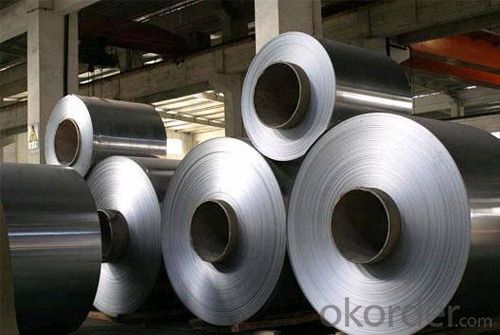
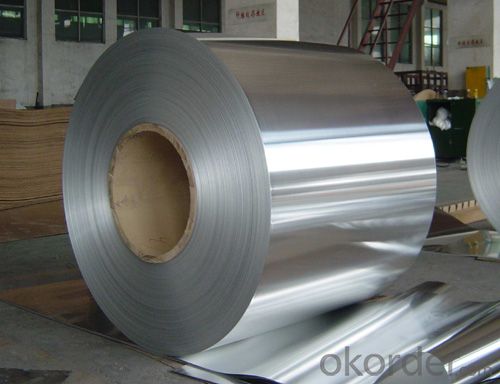
6. Package and shipping of Aluminium Coil for Ceiling Roofing Mill Finished
eye to sky
eye to wall
with wooden pallet (wooden case also available)
7. FAQ
1) What is the delivery time?
Dpends on actual order, around 20 to 35 days
2) What is the QC system:
We have QC staff of 20 persons and advanced equipment, each production is with MTC traced from Aluminum ingot lot.
3) What market do you mainly sell to?
Australia, America, Asia, Middle East, Western Europe, Africa etc
- Q: I am sanding tool marks out of aluminum rims and plan on polishing them. Any help to make sanding them easier would be welcome.
- Eastwood okorder /
- Q: Are aluminum coils suitable for architectural louvers?
- Yes, aluminum coils are suitable for architectural louvers due to their lightweight nature, durability, and corrosion resistance. They can be easily shaped and formed into various louver designs, providing both functionality and aesthetic appeal to architectural structures.
- Q: What is the difference between pre-painted and natural aluminum coils?
- Pre-painted and natural aluminum coils refer to two different types of aluminum coils used in various industries. The main difference between pre-painted and natural aluminum coils lies in their surface finish. Pre-painted aluminum coils, as the name suggests, are coated with a layer of paint or a protective coating before they are delivered to the customers. This coating is applied in a controlled environment, ensuring a uniform and durable finish. The pre-painted coating provides several advantages such as enhanced corrosion resistance, improved aesthetics, and better weatherability. It also allows for a wide range of color options, making it suitable for architectural applications where color matching is important. On the other hand, natural aluminum coils are left untreated and retain their original metallic appearance. These coils are typically used in applications where the natural aluminum finish is desirable, such as in the manufacturing of consumer electronics, automotive parts, and other industrial products. Natural aluminum coils are known for their excellent thermal conductivity, lightweight nature, and high strength-to-weight ratio. In summary, the difference between pre-painted and natural aluminum coils lies in their surface finish. Pre-painted aluminum coils are coated with a protective layer of paint, offering enhanced corrosion resistance, improved aesthetics, and color options. Natural aluminum coils, on the other hand, retain their original metallic appearance and are often used in applications where the natural aluminum finish is preferred.
- Q: What are the different types of aluminum coils available?
- There are several different types of aluminum coils available in the market. Each type is designed to cater to specific requirements and applications. 1. Mill Finish Aluminum Coils: These coils have a plain, shiny surface with no additional treatments or finishes applied. They are often used in general applications where aesthetics are not a major concern. 2. Anodized Aluminum Coils: Anodizing is an electrochemical process that forms a protective layer on the surface of the aluminum. This type of coil is highly corrosion-resistant and provides excellent durability. Anodized aluminum coils are commonly used in architectural applications, such as building facades, window frames, and signage. 3. Painted Aluminum Coils: These coils are coated with a layer of paint, typically through a coil coating process. The paint provides not only aesthetic appeal but also protection against weathering, UV radiation, and corrosion. Painted aluminum coils are widely used in the construction industry, for roofing, cladding, and rainwater goods. 4. Embossed Aluminum Coils: These coils have a textured or patterned surface created by embossing rollers. The embossed patterns can vary from simple designs to intricate motifs, providing both aesthetic appeal and enhanced slip resistance. Embossed aluminum coils are commonly used in flooring, decorative panels, and transportation applications. 5. Pre-painted Aluminum Coils: Similar to painted coils, pre-painted aluminum coils are coated with paint. However, the coating is applied before the coil is formed, allowing for greater flexibility in terms of color options and finishes. Pre-painted aluminum coils find applications in various industries, including automotive, appliance manufacturing, and signage. 6. Clad Aluminum Coils: Clad aluminum coils consist of two layers of aluminum bonded together, usually through a rolling or extrusion process. The purpose of the clad is to combine the desirable properties of different aluminum alloys, such as strength, corrosion resistance, or conductivity. Clad aluminum coils are commonly used in the automotive, aerospace, and electrical industries. In addition to these types, there are also specialized aluminum coils available for specific applications, such as heat exchangers, condenser coils, and transformer windings. These coils are designed with specific properties and characteristics to meet the requirements of these specialized applications.
- Q: How are aluminum coils joined together?
- Aluminum coils are commonly joined together through a process called welding. Welding is the process of permanently joining two metal pieces together by melting their edges and allowing them to cool and fuse. There are several methods of welding that can be used to join aluminum coils, including gas tungsten arc welding (GTAW), gas metal arc welding (GMAW), and friction stir welding (FSW). GTAW, also known as TIG (tungsten inert gas) welding, is a precise and versatile method commonly used for joining aluminum coils. It involves a non-consumable tungsten electrode that produces an electric arc to melt the base metal, while an inert gas shield (usually argon) protects the weld zone from atmospheric contamination. GMAW, also known as MIG (metal inert gas) welding, is another common method used for joining aluminum coils. It uses a consumable wire electrode that is fed through a welding gun, along with a shielding gas to protect the weld zone from oxidation. FSW is a solid-state joining process that uses a rotating tool to generate friction heat between the aluminum coils. The heat softens the metal, allowing the tool to stir and join the materials together without melting them completely. These welding methods are widely utilized in various industries, including automotive, aerospace, construction, and manufacturing, due to their ability to provide strong and reliable joints between aluminum coils. Additionally, advancements in technology have led to the development of specialized welding techniques and equipment, ensuring efficient and high-quality joining of aluminum coils.
- Q: What are the dimensions of an aluminum coil?
- The dimensions of an aluminum coil can vary depending on its intended use and manufacturing specifications. However, typical dimensions for an aluminum coil range from 0.2mm to 8mm in thickness and 200mm to 2000mm in width. The length of an aluminum coil can vary and is often determined by the customer's specific requirements. Additionally, the weight of an aluminum coil can vary depending on its thickness and dimensions.
- Q: What house hold materials contain 100% pure aluminum. or where can i buy it. im making thermite, which ive made before so don't say, its dangerous don't do it, but do i need 100% pure aluminum or will some aluminum alloy with like 90% aluminum work?????
- Aluminum foil is your best bet. According the the Reynold's wrap web site, their foil is 98.5% aluminum.
- Q: Can aluminum coils be used in food packaging?
- Yes, aluminum coils can be used in food packaging. Aluminum is a safe and versatile material that has been widely used in the food packaging industry for many years. It offers various benefits such as being lightweight, resistant to corrosion, and having excellent thermal conductivity. These properties make it ideal for food packaging applications where it is important to preserve the quality, freshness, and safety of the food products. Aluminum coils can be easily formed into different shapes and sizes, allowing for customized packaging solutions. Additionally, aluminum is a sustainable material as it is 100% recyclable, which further enhances its appeal for food packaging.
- Q: What benefits can be gained from utilizing aluminum coil insulation in various applications?
- <p>Aluminum coil insulation offers several advantages, including high thermal conductivity, which allows for efficient heat transfer. It is lightweight and corrosion-resistant, making it durable and suitable for various environments. The material is also known for its flexibility, which facilitates easy installation and adaptability to different shapes and sizes. Additionally, aluminum coil insulation has good electrical conductivity, which can be beneficial in applications requiring electromagnetic shielding. Its recyclability contributes to environmental sustainability, reducing waste and promoting green practices.</p>
- Q: How are aluminum coils stored and transported?
- Aluminum coils are typically stored and transported in a way that ensures their safety and minimizes damage. These coils are usually stored in a warehouse or storage facility, where they are protected from the elements and other potential hazards. The coils are often neatly stacked in a secure manner, with appropriate padding or spacers to prevent any movement or potential damage. When it comes to transportation, aluminum coils are usually transported using flatbed trucks or shipping containers. These vehicles are equipped with secure tie-downs and restraints to prevent any shifting or damage during transit. It is important to ensure that the coils are properly secured to prevent any accidents or mishaps. Additionally, some precautions are taken during transportation to protect the aluminum coils from any potential damage. For instance, the coils may be covered with protective materials, such as plastic or fabric, to prevent scratches or dents. In some cases, the coils may also be wrapped with stretch film or strapped with bands to provide additional protection. Overall, the storage and transportation of aluminum coils require careful handling and adherence to safety protocols. This ensures that the coils remain in optimal condition and are delivered to their destination without any issues.
Send your message to us
Best Aluminum Coil Slitter Quotes for Ceiling Roofing Mill Finished
- Loading Port:
- China main port
- Payment Terms:
- TT OR LC
- Min Order Qty:
- 5 m.t
- Supply Capability:
- 10000 m.t/month
OKorder Service Pledge
OKorder Financial Service
Similar products
Hot products
Hot Searches
Related keywords
